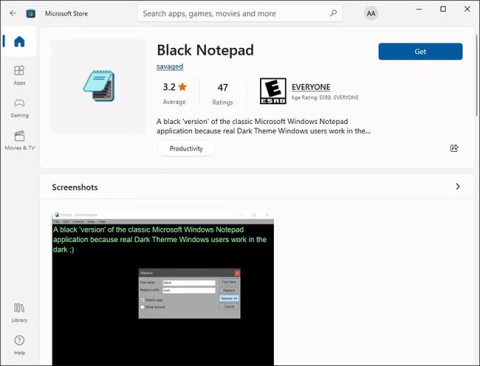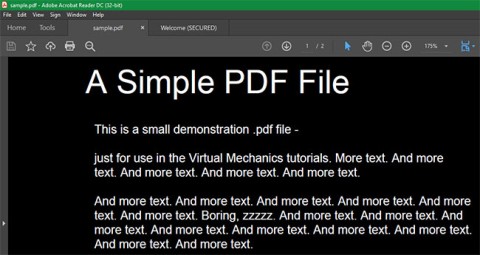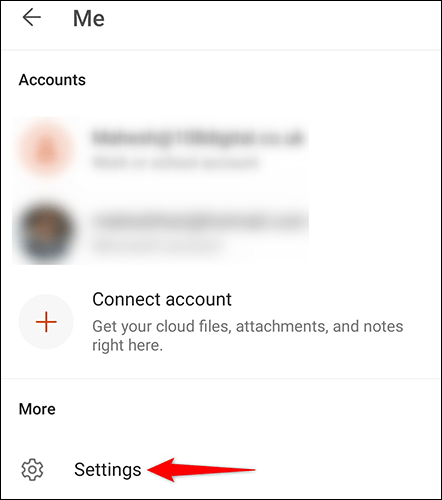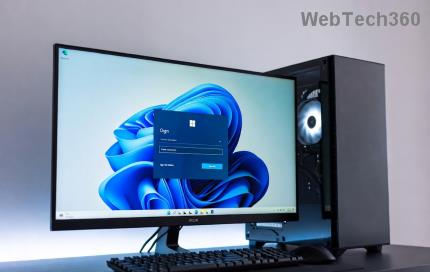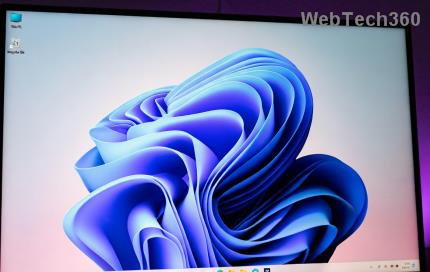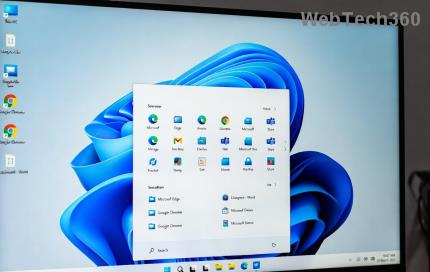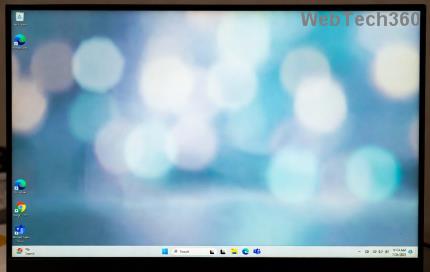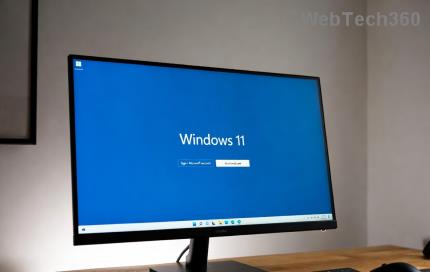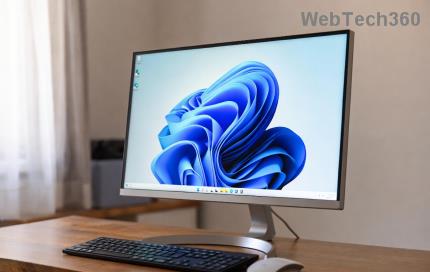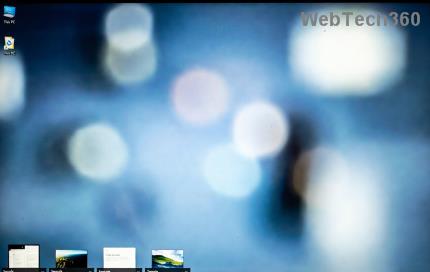12 Settings on Samsung Galaxy Phones You Should Change
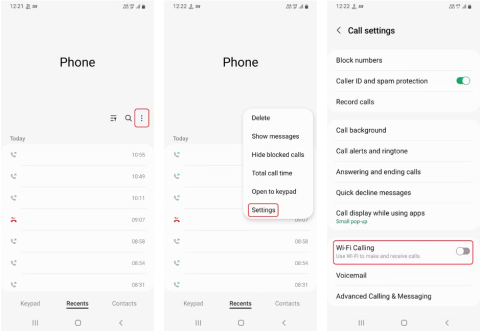
Just bought a new Samsung Galaxy phone and need to configure it? Here are 10 settings you should change to make your Samsung phone run better.
With the practical benefits it brings, dark mode has now become one of the indispensable interface options on most operating systems and even in each application. Windows 10 has long supported dark mode, so there is no reason why Microsoft does not bring this feature to Windows 11. This article will guide you through simple setup steps to enable Dark Mode on your Windows 11 system. This mode will be applied synchronously on the interface of both applications and the system taskbar.
Enable Dark Mode in Windows 11
1. Right-click an empty area on the desktop and select Personalize .
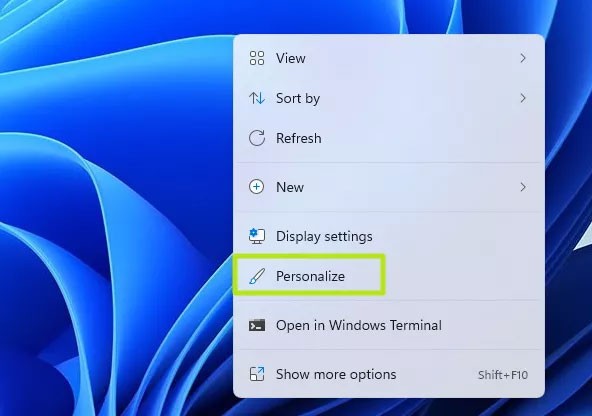
2. Click Colors . A submenu will appear.
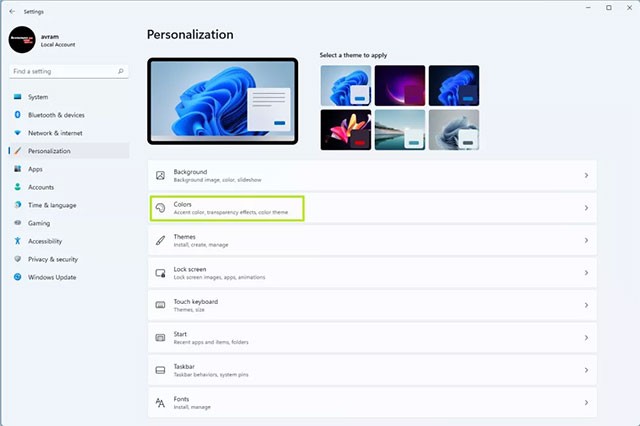
3. Click on the Dark option from the “ Choose your mode ” menu.
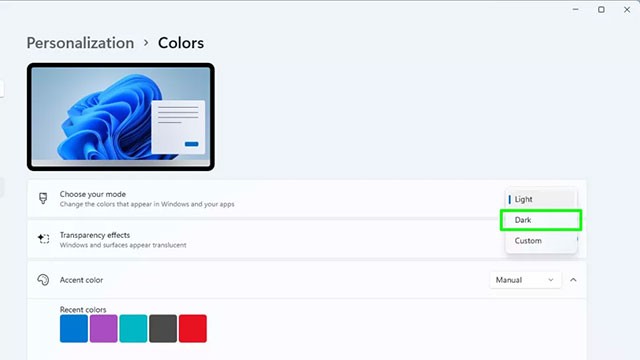
You can also select Custom mode . This option will let you switch between Windows mode (taskbar) and default app mode (apps) to Dark or Light separately. However, if you really like the uniform dark background interface, you should not select this option.
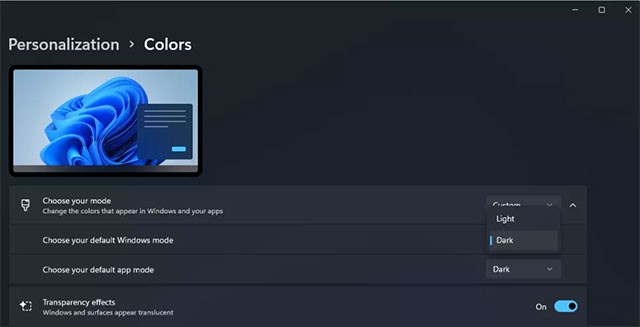
Now, the interface on all your Windows 10 apps and taskbar will display light text on a dark background. However, content that has dark text on a light background by default, such as on web pages, emails, or Word documents, will still be displayed.
How to use high contrast theme for dark mode
If you want light text on dark background even in the above content, you need to use contrast theme in Windows 11.
1. Right-click an empty area on the desktop and select Personalize.

2. Click Colors .
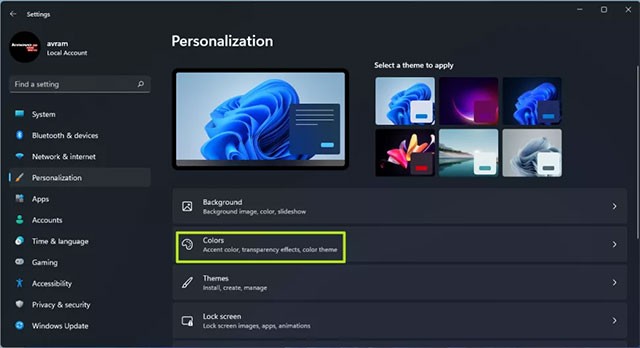
3. Select Contrast Themes .
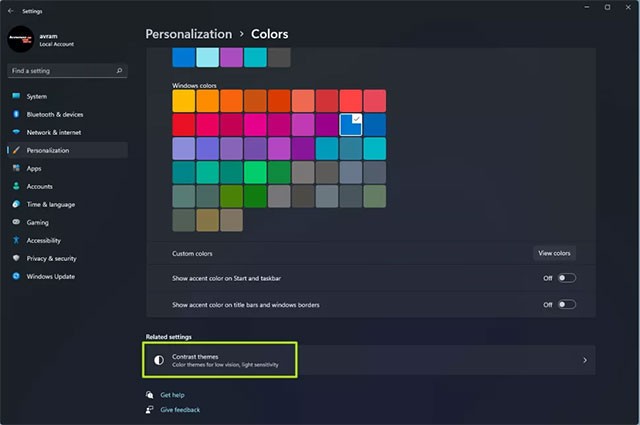
4. From the Contrast Themes menu that appears, select Aquatic . Of course you can also try Dusk or Night sky , but Aquatic is generally the most suitable.
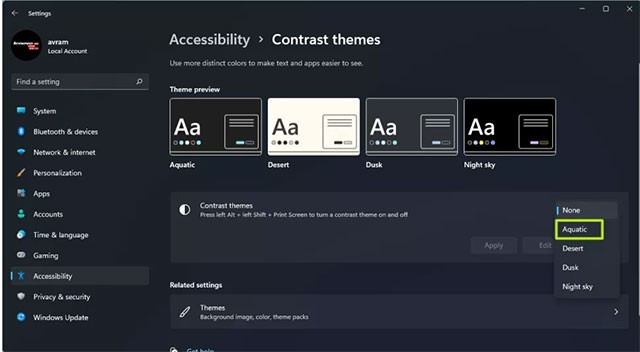
5. Click Apply .

Windows 11 will quickly apply any changes, and now all your content will be in dark mode.
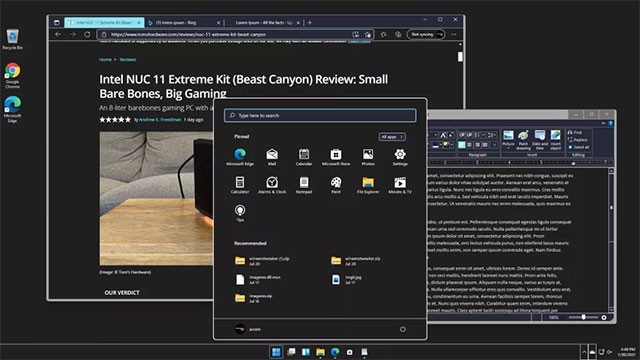
How to create a shortcut to turn Dark Mode on/off in Windows 11
To do this, you will need to download the Easy Dark Mode extension. This is a lightweight third-party program for quickly switching between dark and light modes.
Dark Mode offers a lot of customization options. In addition to a system tray icon that lets you switch between color modes with a single click, you can also display a floating switcher on your screen.
You can configure the Start Mode option to set the color mode when your PC restarts. Furthermore, you can set up a hotkey to switch between dark and light mode in a snap.
To set up a shortcut for dark mode in Windows 11:
1. Download and run the Easy Dark Mode executable file . This is a portable application and does not require installation.
2. You will see the Easy Dark Mode application icon in the system tray. You can click the icon to turn dark mode on and off.
3. To set up a hotkey, right-click on the Easy Dark Mode icon and select Hotkey.
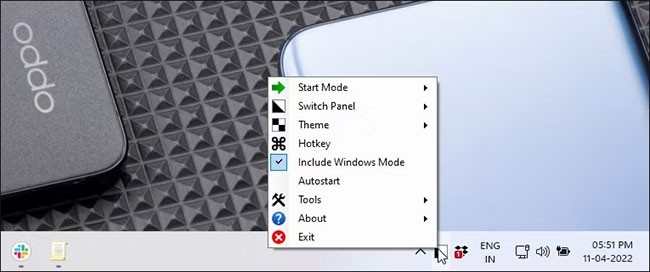
4. In the Hotkey Settings dialog box , click the drop-down menu and select any letter. For example, if you want to use Alt + D to enable dark mode, select D and then check the Alt box.
5. Click OK to save the changes.
6. Press Alt + D to test the hotkey. If it works, press it again to turn off Dark Mode.
Since Easy Dark Mode is a portable application, you will need to enable the Auto Start feature for the application. To do this, right-click on the application icon in the system tray and select Auto Start. With this, the application will start with the operating system.
Just bought a new Samsung Galaxy phone and need to configure it? Here are 10 settings you should change to make your Samsung phone run better.
Windows comes with a dark theme that improves the overall aesthetics of the system. However, this option is limited and does not affect certain applications.
PDF is a common file format that you probably work with on a regular basis, so it's a shame that not all PDF readers have a Dark Mode.
While proponents claim this mode can reduce eye strain and save battery, this setting may not always be the best option for everyone.
Dark mode is becoming an indispensable feature on any application platform.
Struggling with the frustrating "Something Went Wrong" error during Windows 11 upgrade? Discover proven, step-by-step fixes to get your system updated smoothly and securely. Say goodbye to upgrade headaches!
Struggling with Printer Error 709 on Windows 11 after a recent update? Discover proven troubleshooting steps to resolve this issue and get your printing back on track without frustration. Step-by-step guide for smooth fixes.
Discover how to harness the latest Windows 11 accessibility features in 2026 to make your computing experience inclusive, efficient, and empowering. Step-by-step guides for everyone.
Struggling with JDK install failures? Dive into this comprehensive troubleshooting guide to resolve common Java Development Kit issues on Windows, macOS, and Linux. Get back to coding without the hassle.
Struggling with the Windows 11 Sticky Notes database error? Discover proven troubleshooting steps to restore your notes quickly and effortlessly. Get back to productivity without the frustration.
Struggling with Rainmeter skin positioning errors on Windows 11? Discover proven fixes for misalignment, dragging issues, and DPI glitches. Step-by-step guide to restore your desktop perfection.
Discover how to use Windows 11 virtual desktops correctly to supercharge your workflow. Learn setup, management, and pro tips for seamless multitasking without the overwhelm.
Discover how to safely convert MBR to GPT without data loss in Windows 11. Follow our step-by-step guide using built-in tools and third-party software for a seamless upgrade to modern partitioning.
Struggling with the 0x80072ee7 Store connectivity error? Discover proven, step-by-step fixes to restore your Microsoft Store access quickly and easily. Say goodbye to frustrations!
Struggling with background change errors on Windows 11 Pro? This step-by-step guide helps gamers fix the issue fast, restoring your custom setups without hassle. Discover proven methods to personalize your desktop effortlessly.
Discover how to set up Windows 11 Dynamic Refresh Rate for buttery-smooth performance on compatible displays. Follow our step-by-step guide to optimize your PC
Struggling with slow browsers on Windows 11? Discover proven fixes for memory leaks in Chrome, Edge, Firefox, and more. Boost performance and end frustration today.
Struggling with the Windows 11 Photos App File System Error? Discover proven, step-by-step fixes to restore your photo viewing experience without hassle. Updated with the latest troubleshooting tips for seamless performance.
Struggling with OBS Studio black screen on Windows 11? Discover proven fixes for smooth streaming and recording. Step-by-step guide to resolve black screen issues quickly and easily.
Struggling with "GPT Partition Style Not Supported" error on your old PC? Discover proven solutions to convert partitions safely, upgrade your system, and get back to smooth computing without data loss. Perfect for legacy hardware users.
